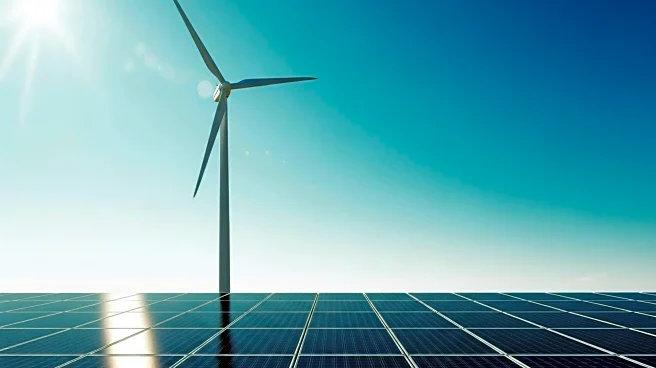What's Happening?
The International Energy Agency's Renewables 2025 report highlights significant growth in solar power, which is expected to account for 80% of new renewable capacity worldwide. Countries like Australia are moving towards 100% renewable energy, while solar power has become the leading source of electricity in the EU. This shift is part of a broader global trend towards clean energy, driven by technological advancements and policy changes. The report indicates that renewables are displacing fossil fuels, contributing to a reduction in carbon emissions.
Why It's Important?
The transition to renewable energy is crucial for addressing climate change and reducing reliance on fossil fuels. It represents a significant shift in global energy production, with implications for economic growth, environmental sustainability, and energy security. The increase in renewable capacity can lead to job creation in the clean energy sector and reduce greenhouse gas emissions, contributing to global climate goals. This trend also highlights the potential for innovation and investment in renewable technologies, which can drive further advancements in energy efficiency and sustainability.
Beyond the Headlines
The growing dominance of solar power and other renewables may lead to geopolitical shifts, as countries with abundant renewable resources gain influence in the global energy market. The transition also poses challenges for traditional energy industries, which may face economic pressures and the need to adapt to new technologies. Additionally, the expansion of renewables can enhance energy access in underserved regions, promoting social and economic development. The shift towards clean energy is likely to continue, driven by environmental concerns and technological progress.








